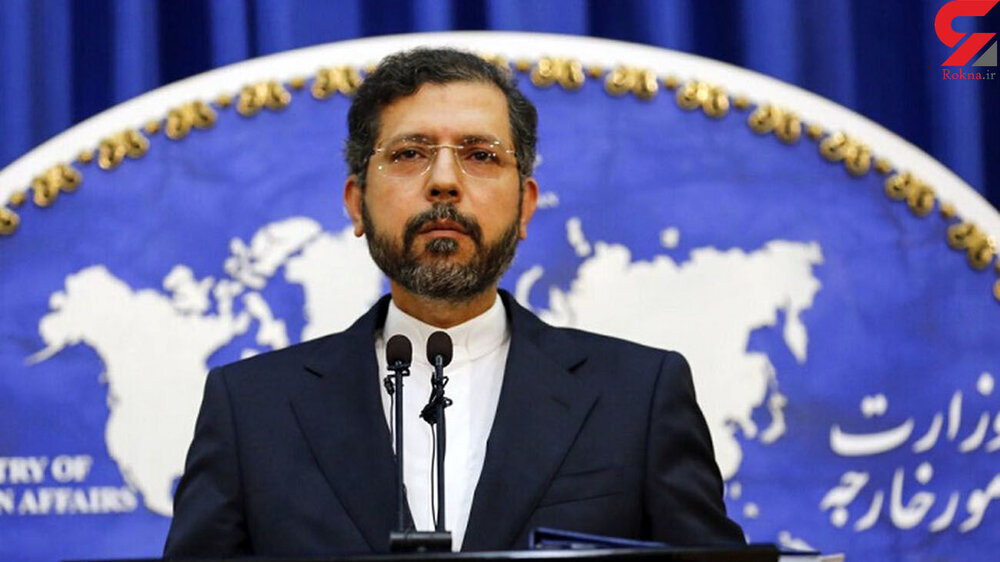IAEA resolution is ‘political’: Iran

TEHRAN – Iranian Foreign Ministry spokesman Saeed Khatibzadeh has rejected the censure resolution adopted by the UN nuclear watchdog’s Board of Governors as “political.”
Speaking at a weekly press conference on Monday, Khatibzadeh said Iran and the International Atomic Energy Agency (IAEA) were on a path of cooperation since March but the resolution disrupted this path.
“It was a completely political and designed move. And it disrupted the path defined between Iran and the Agency,” Khatibzadeh said of the resolution.
The spokesman said Iran and the IAEA exchanged visits in accordance with the March 15 joint statement.
The resolution showed that IAEA Director-General Rafael Grossi was taking orders from a “center,” he added
“Certainly, we couldn’t have let the IAEA’s political and non-technical move go unanswered,” Khatibzadeh noted.
Khatibzadeh also expressed regret over Grossi’s trip to Israel ahead of the adoption of the resolution. “It is regrettable that the Director General of the Agency, as the Agency's agent, has put this Agency at the disposal of such a law-breaking regime,” he lamented.
The Foreign Ministry spokesman noted that Grossi discredited the Agency by visiting Israel. “I think the message of this trip is as clear as any other diplomatic move. The Director General should be concerned about impartiality and independence,” Khatibzadeh cautioned.
“He met the wrong people at the wrong time and in the wrong place. The Agency's reputation has been badly damaged in the public eye,” Khatibzadeh said.
Last week, the tense relations between Iran and the West took a new turn after the main interlocutors of Iran in the Vienna talks pushed jointly for the censure resolution at the IAEA’s board, the first move of its kind in two years.
The resolution, though mild in language and unbinding in nature, elicited harsh criticism from Iranian officials at various levels.
The Atomic Energy Organization of Iran (AEOI) injected uranium gas into advanced centrifuges and deactivated certain UN nuclear agency cameras outside the Safeguards Agreement.
“We have terminated the operations of a number of the Agency's cameras functioning outside the Safeguards Agreement, and tomorrow we will terminate the operations of the rest, which are 17 to 18 in total,” Mohammad Eslami, Iran's nuclear chief, told a special TV program on Thursday night.
Iran's President Ebrahim Raisi also reacted to the resolution, saying “Iran will not take a step back from its positions.” And in Parliament, there was an uproar on Sunday.
Iran's Foreign Minister also chastised the United States and its three European allies, the United Kingdom, France, and Germany, for filing the anti-Iranian resolution to the IAEA’s board, calling the move “hasty and politically motivated”.
Hossein Amir Abdollahian made the remarks during a Saturday night phone conversation with UN Secretary General Antonio Guterres.
The IAEA resolution was passed with 30 votes in favor, two against, and three abstentions on Wednesday. China and Russia voted against the resolution and India, Libya and Pakistan abstained.
During the phone call, the two sides also discussed efforts to resurrect the 2015 Iran nuclear agreement, officially known as the Joint Comprehensive Plan of Action (JCPOA).
Guterres said the resolution by the IAEA board was only a “proposal” and emphasized the significance of continuing dialogue to revive the JCPOA.
The UN secretary-general said dialogue is the best way to settle the problems between Iran and other JCPOA parties.
Leave a Comment